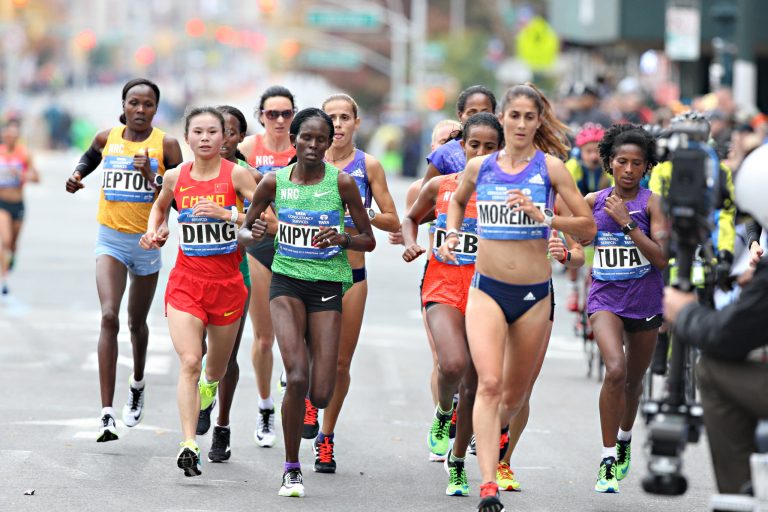Mentally Recover From A Running Injury
To mentally recover from a running injury, focus on positive mindset and gradual physical reconditioning. Embrace patience and self-care during the healing process to rebuild confidence in your abilities.
Running injuries can be physically and mentally challenging, impacting your overall well-being. It is normal to experience frustration and disappointment when sidelined from your favorite activity. However, with the right approach, you can navigate through this time and emerge stronger.
By maintaining a positive outlook, setting realistic goals, and seeking support from professionals or fellow runners, you can effectively overcome the mental hurdles associated with a running injury. This journey of mental recovery can lead to not only physical healing but also a deeper understanding of your body and its needs.

Credit: www.amazon.com
Accepting The Injury
When dealing with a running injury, the first step towards mental recovery is accepting the injury. It’s natural to feel frustrated and emotional during this time. Acknowledging the injury and allowing yourself to feel frustration are vital aspects of the healing process. Here’s how to navigate this challenging phase.
Acknowledge The Injury
Recognizing the reality of the injury is the initial crucial step towards mental recovery. Denying or downplaying the severity of the injury can hinder the healing process. By acknowledging the injury, you empower yourself to seek the necessary treatment and adjust your mindset for a smoother recovery journey.
Allow Yourself To Feel Frustration
Feeling frustrated, upset, or even angry about the injury is completely normal. It’s essential to allow yourself to experience these emotions rather than suppressing them. By acknowledging and accepting your feelings, you can release pent-up emotions, which can ultimately alleviate mental stress and contribute to a more positive mindset for healing.

Credit: health.clevelandclinic.org
Understanding The Recovery Process
Mentally recovering from a running injury can be a challenging journey, but understanding the recovery process is crucial for a successful comeback. Here, we delve into the key aspects that can help you navigate this period with confidence.
Educate Yourself On The Injury
- Research the specific injury and its common causes.
- Understand the recovery timeline and necessary treatments.
- Consult with healthcare professionals for expert guidance.
Set Realistic Expectations
- Accept that recovery takes time and patience.
- Focus on gradual progress rather than rushing back into full training.
- Listen to your body and adjust expectations accordingly.
Develop A Rehabilitation Plan
To recover mentally from a running injury, you must develop a rehabilitation plan by following these steps:
Consult A Medical Professional
Seek expert advice from a healthcare provider for proper assessment and personalized treatment.
Follow A Guided Rehabilitation Program
Adhere to a structured recovery plan designed by professionals for a safe and effective progression.
Maintaining Mental Well-being
Maintaining mental well-being is crucial when recovering from a running injury. It is essential to focus on practices that promote a positive mindset and aid in the healing process.
Practice Self-care
Making time for self-care activities can significantly contribute to mental well-being during recovery. Ensure to allocate time for activities that bring joy and relaxation, such as taking a warm bath, practicing meditation, or indulging in a favorite hobby. Creating a positive environment at home, listening to uplifting music, and spending time in nature can also help in maintaining a positive mental state.
Engage In Cross-training Or Alternative Activities
Participating in cross-training or alternative activities can play a key role in preserving mental well-being while allowing the body to rest and recover. Consider activities such as swimming, cycling, or yoga to maintain physical fitness and alleviate the mental strain of not being able to run. Exploring new activities can also bring a sense of excitement and a fresh perspective to the recovery journey.
Returning To Running
A running injury can be discouraging and frustrating, but with time and proper rehabilitation, you can mentally recover and get back to doing what you love – running. Returning to running after an injury requires patience, a gradual increase in mileage, and above all, listening to your body. Here are some important tips to help you ease back into running and make a successful comeback.
Gradually Increase Mileage
When you have been out of running due to an injury, it’s important to start slowly and gradually increase your mileage. Pushing yourself too hard or too soon can lead to reinjury and setbacks. Begin with short runs or even a walk-run combo to allow your body to adjust and build up your endurance. Consistency is key, so aim to run a few times a week, increasing your distance gradually.
- Increase your mileage by no more than 10% each week. This gradual approach will allow your body to adapt, minimizing the risk of injury.
- For example, if you are comfortable running 10 miles per week, aim for an increase of just 1 mile the following week. This gradual progression will help your body adjust to the demands of running without overloading it.
- Pay attention to how your body feels during and after each run. If you experience pain or discomfort, scale back your mileage and give yourself more time to recover.
Listen To Your Body
Listening to your body is crucial when returning to running after an injury. Your body will signal if you are pushing too hard or need to take a step back. Here are a few essential points to keep in mind:
- Pay attention to any pain or discomfort during your runs. Pain is your body’s way of telling you something is not right, so don’t ignore it.
- If you experience any persistent pain or a new type of pain, consult a healthcare professional to determine the cause and appropriate treatment.
- Don’t be afraid to take rest days. Rest and recovery are just as important as running itself. Giving your body time to heal and rebuild will ultimately make you a stronger runner.
Returning to running after an injury is a process that requires patience and self-awareness. By gradually increasing your mileage while listening to your body, you can minimize the risk of reinjury and pave the way for a successful comeback. Remember to be kind to yourself and celebrate your progress, no matter how small. With determination and a positive mindset, you will be back on the roads or trails, enjoying the freedom and joy that running brings.

Credit: www.henryford.com
Frequently Asked Questions On Mentally Recover From A Running Injury
Q: How Do You Mentally Recover From A Running Injury?
A: Understand that setbacks happen, maintain a positive mindset, set realistic goals, and focus on the healing process.
Q: What Strategies Can Help Cope With Running Injuries?
A: Seek support from your running community, engage in low-impact activities, consult a physical therapist, and practice mindfulness techniques.
Q: Can Mental Recovery Affect Physical Healing Of Running Injuries?
A: Absolutely! Stress and negative emotions can hinder the healing process, making it essential to prioritize mental well-being alongside physical healing.
Conclusion
To conclude, mental recovery from a running injury is an essential aspect of the overall healing process. By staying positive, setting realistic goals, and seeking support from others, you can overcome the mental hurdles that often accompany physical setbacks. Embracing patience and focusing on gradual progress will ultimately lead to a successful and fulfilling return to running.






